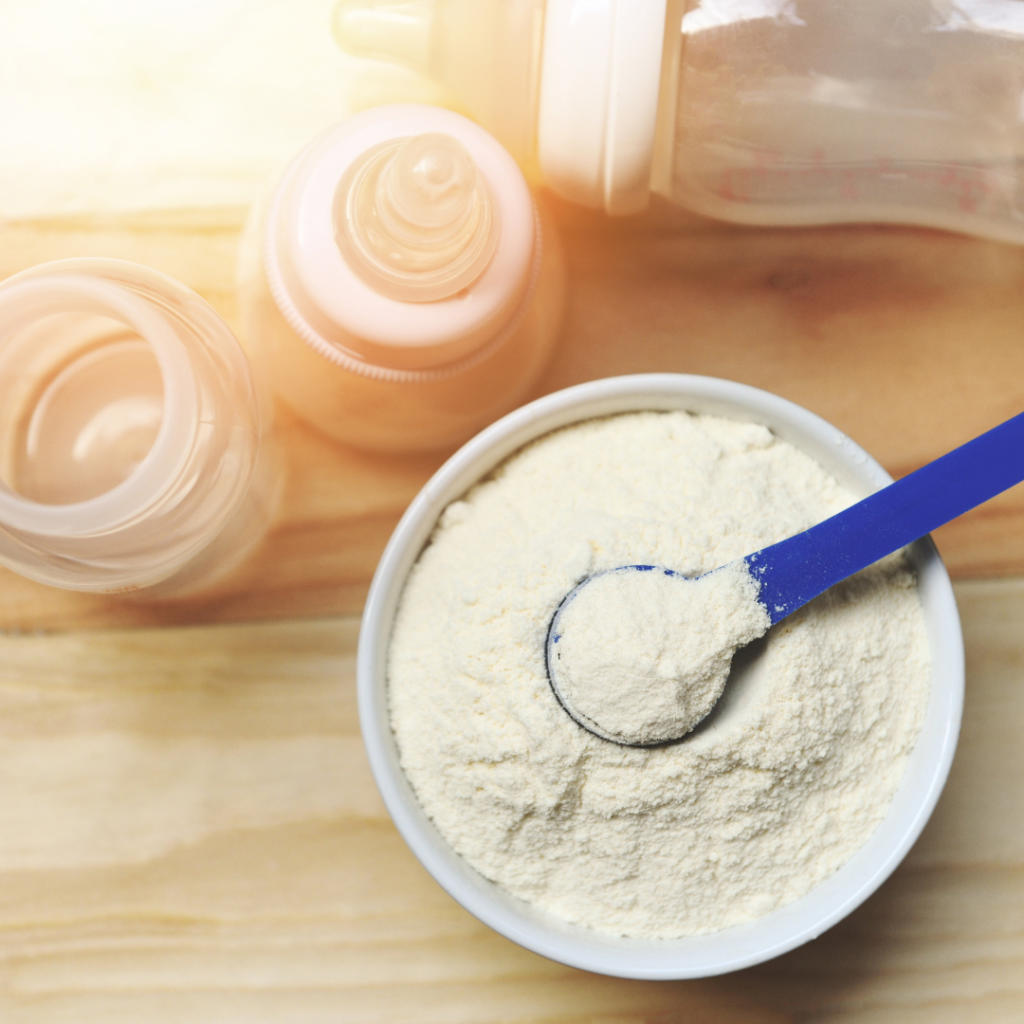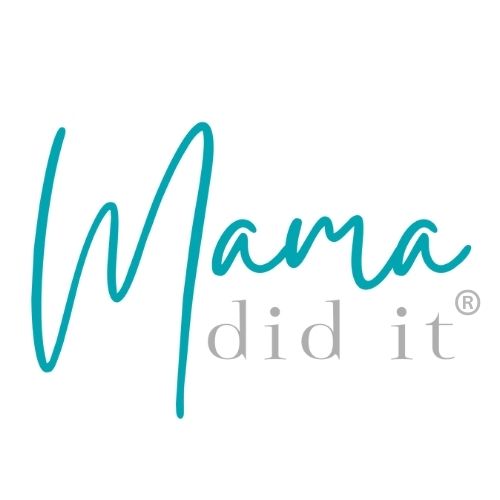What Nursery Water is Best for Baby Formula? Who knew there could be so many baby water choices! Let’s look at the safest options and find the best nursery water for baby formula.
When I was a brand new mama, I didn’t initially realize that this mattered. I assumed water was water right? Apparently not. Babies are incredibly delicate and vulnerable, and their little tummies can’t handle much. So, it’s important to find the purest and best nursery water for your baby’s formula. Let’s look at the best nursery water for baby formula.
Whether your baby relies solely on infant formula or you’re supplementing breastfeeding with a bit of formula, the baby water you choose is super important in providing the nutrition they need. Having a new baby is a lot in itself and can be overwhelming. Let’s walk through this together with some safe nursery water options.
The Best Nursery Water for Baby Formula
Most pediatricians agree that a water designed for babies is best. Distilled water is mostly recommended because it is free from contaminants. Things like tap water, well water, and even some bottled water can contain chlorine, fluoride, or other minerals that can interfere with the balance of nutrients for your baby.
These waters have been pediatrician-approved for your baby!
1. Nursery Water:
Let’s kick things off with a brand that seems custom-made for our conversation – “Nursery Water.” This gem is designed with formula prep in mind, going through a thorough purification process, like reverse osmosis and/or distillation that scrubs away any impurities. Nursery Water offers a dependable choice for a type of water that’s both convenient and consistent, coming in gallon jugs for easy access to clean water for those precious bottles.
Keep Nursery Water at room temperature (around 70 degrees F or 21 degrees C) for formula mixing, and, of course, keep those bottles squeaky clean and disinfect them after every use.
2. Bay Bay Water:
This brand understands the unique needs of formula-fed babies, offering a purified water option that aligns with high safety standards. Bay Bay Water is distilled and doesn’t use any unwanted added or minerals which can upset the balance of your baby’s digestive system. I love that it’s packaged for portable travel making it so easy to throw in a diaper bag. Check out Bay Bay Water for a fresh choice that might just become your new go-to nursery water for your baby’s formula.
3. Aquawawa:
How about that playful name, Aquawawa? It sure brings a smile, but let me tell you, this brand takes water seriously. They’re all about purity, making this nursery water a solid choice for formula prep. Aquawawa uses vapor distillation to insure you only get what your baby needs in the water and nothing they don’t. Ideal for moms who want that peace of mind knowing their baby’s water is purified with them in focus.
4. Enfamil Water:
For all you moms loyal to Enfamil formula, you’ll be glad to know they’ve thought of everything, including “Enfamil Water.” It’s designed to perfectly complement their powdered formula, going through a purification process to make it a safe choice for those tiny tummies. Enfamil Water is completely sterile which can be the best choice for babies who are premature or dealing with other health issues.
What’s great is that it comes in just the right portion size and is ready to go. Perfect for traveling! Enfamil Water is a go-to for parents like me who want the assurance that this kind of water is absolutely safe for our little ones.
5. Parent’s Choice Nursery Water
I would be remiss if I didn’t throw in a brand widely available at most big box stores. Parent’s Choice Nursery Water is a viable choice for mixing with baby formula as it is purified through steam distillation. Coming in gallon jugs, it’s great for home preparation of formula as well as storing away as an extra stash.

Other Considerations on Water for Baby Formula:
Feeding your baby involves more than just choosing the best water for their formula. Now that we’ve covered some great formula water brands to choose from, let’s delve into some more important things to consider when preparing your baby’s formula.
1. Water Temperature
No matter what water you decide on, always keep an eye on the recommended water temperature. Most guidelines suggest room temperature (around 70 degrees F or 21 degrees C) to keep those nutrients intact. It’s like a little temperature dance to ensure your baby gets all the goodness with the best nursery water for their formula. It’s definitely easiest if your baby will take a bottle at room temperature, but if not, a bottle warmer can be a good idea. Always test on the inside of your wrist to be sure it isn’t too hot for your baby’s mouth.
2. Bottle Cleanliness
Regardless of the brand, consider bottle cleanliness just as important. Before every use, make sure those bottles are not just clean but sterilized. It’s a non-negotiable step to prevent any unwanted bacteria hitchhikers that could mess with your baby’s health. A little extra TLC for those clean bottles goes a long way, enhancing the safety of the best nursery water for your baby’s formula.
3. Be sure to prepare formula according to the package directions.
This is very important. Baby Formula is designed with the right nutrients, calories, and proteins that your baby needs. Preparing formula incorrectly can affect their nutrition. Use instructions printed on the type of formula taking care to add enough water and enough formula. This can get tricky if switching between powder formula and liquid concentrate. When in doubt, check the directions.
3. Consider Your Water Supply:
Before committing to a specific brand, take a peek at your local water supply. If you’ve got clean and safe city water or well water, using cold tap water might be the easy way to go. But, always get your water tested to ensure your tap water gets the green light. When in doubt, lean towards distilled water and purified options like discussed above. Water sources that go through rigorous testing or purify through means such as reverse osmosis, are going to give you much more peace of mind.
4. Fluoridated Water:
Thinking about incorporating fluoridated water for your baby’s formula? It’s wonderful that you’re keeping their future dental health in mind as per the guidelines of the American Dental Association. However, let me share a little secret – there’s actually no need to fuss over using fluoridated water. The American Academy of Pediatrics agrees that alternative choices work just as well. You can confidently choose the best nursery water for your baby’s formula without the added complexity of monitoring a fluoride level. It’s all about making parenting a bit simpler and ensuring the utmost care for your little one! No need to worry about much fluoride in the beginning!
5. Consult with Your Pediatrician:
When you find yourself uncertain about the best water for your baby’s formula, your healthcare provider can help. They’re your go-to for personalized advice based on your baby’s health, local water quality, and specific nutritional needs. Your pediatrician is your guru in making decisions that keep your baby’s health front and center, guiding you to the best nursery water for your baby’s formula.
Breast Milk and Formula Harmony:
Here are a few tips for breastfeeding moms who are supplementing with baby formula.
- Gradual Formula Introductions: When introducing formula, consider doing it gradually. Start by mixing a smaller amount of formula with breast milk and gradually increase the ratio over time. This method allows your baby to adjust at their own pace, making the transition smoother and potentially minimizing any resistance to the new taste or texture. Plus, you risk wasting less breast milk this way! Patience is key in this process, giving your little one the time they need to adapt.
- Create a Relaxing Feeding Environment: Make feeding time a calming and enjoyable experience for both you and your baby. Find a quiet and comfortable space, and cherish these moments of connection. Whether you’re breastfeeding or introducing formula, a serene environment fosters a positive association with feeding, contributing to a happier and more relaxed feeding routine.
- Listen to Your Baby: Every baby is unique, and so you need to learn to tune into those cues. Watch for what your baby likes and dislikes and then switch it up if needed. Whether they like their formula a bit warmer or cooler, you will know and quickly pick up on their little baby cues. It’s all about finding that sweet spot with the best nursery water for their formula and creating a seamless mix with breast milk.
- Seek Pro Guidance: And of course, if you are unsure about combining breast milk and formula, seek guidance from your healthcare provider or a lactation consultant. They can provide personalized advice based on your baby’s needs and your specific situation. Your peace of mind is essential on this journey, especially when you’re mixing and trying to find the best method for supplementing formula alongside breast milk.
The Best Nursery Water for Baby Formula
Now, with all these tips in your toolbox, choosing the best nursery water for your baby’s formula doesn’t have to be a stress-inducing journey. Just take a deep breath, do your research, and trust those mama instincts of yours. You will make the right choice. Your peace of mind is precious, so don’t let worry take the wheel. Our goal is simply a safe water source for our baby bottles! Pro-tip: store a couple gallons of extra water away, so you never accidentally run out. This also is most helpful for unforeseen circumstances like snow.
Follow the guidelines from your pediatrician to make choices that align with both your and your baby’s well-being. Keep in mind, when you start with a good nursery water as the foundation for your formula, you’re laying the groundwork for a healthy and happy little one.
Happy formula feeding, enjoy those baby snuggles – you’ve got this!
You may also like 100 Cute Baby Captions for your Instagram Photos.
Post may contain affiliate links
